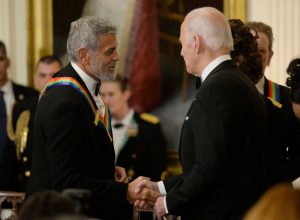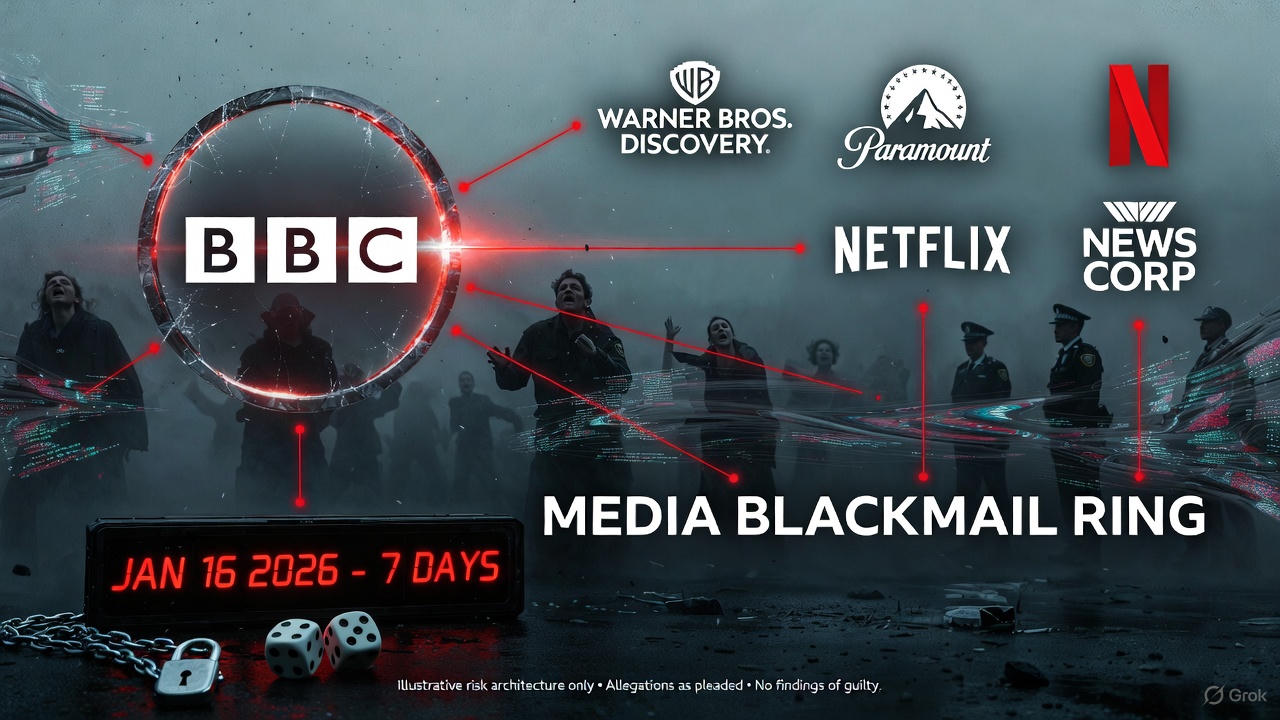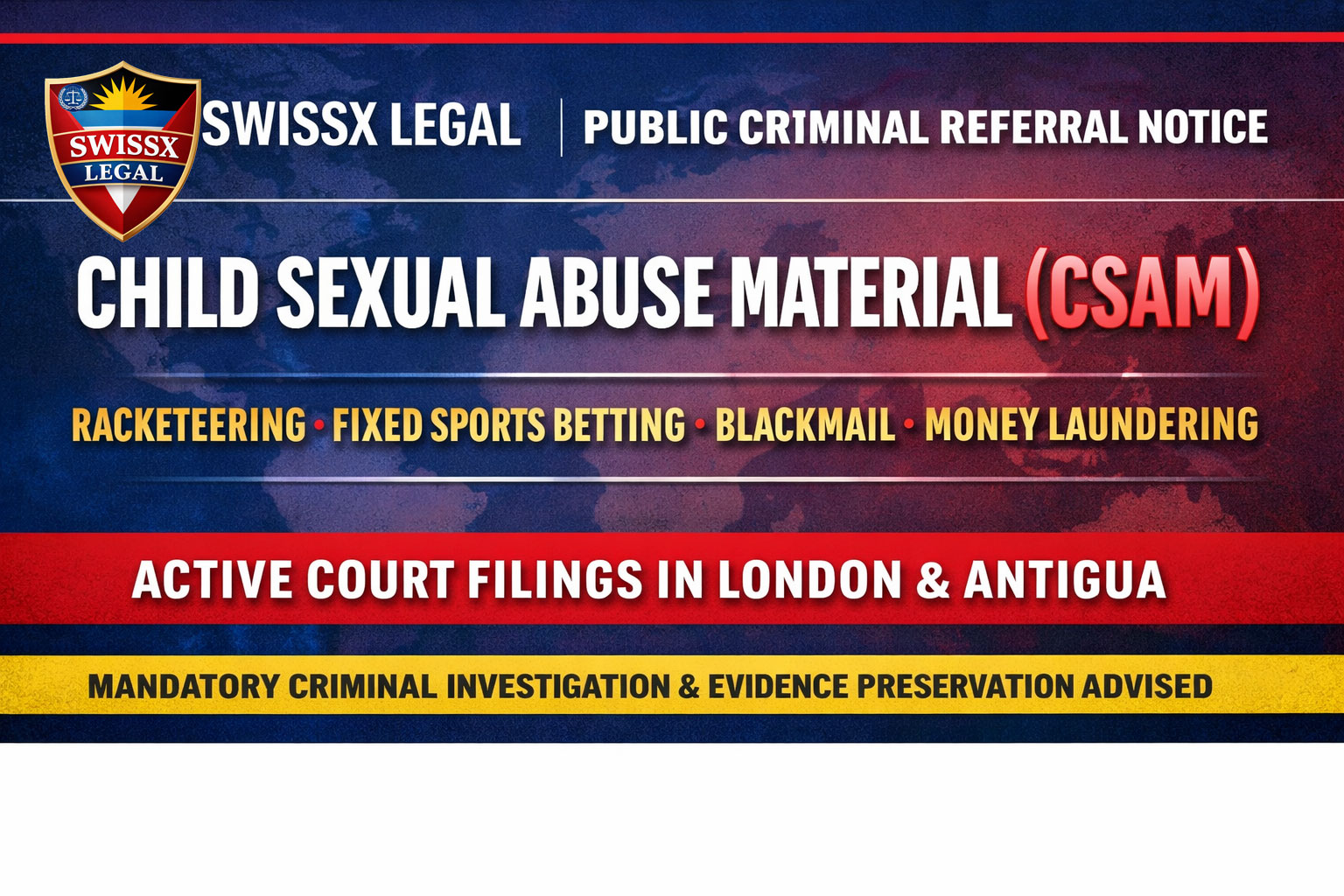George Clooney's recent political maneuver urging President Joe Biden to consider stepping aside has put him at loggerheads with the Hollywood elite, known for their intolerance of dissent. This unexpected move has exposed Clooney to the industry's chilling network of control that stifles any opposition. Insiders suggest that prominent figures, often likened to Hollywood "fixers," are known to leverage California's 5150 psychiatric hold provision to silence and discredit individuals who step out of line. This tactic has been employed against several whistleblowers, including Kanye West, Rose McGowan, and Corey Feldman, illustrating the insidious mechanisms by which Hollywood maintains its grip on power.
For years, the 5150 hold—an involuntary psychiatric detention—has been a weapon for the elite to suppress those threatening to expose Hollywood's darker underbelly. Originally designed for the protection of individuals, it's been reappropriated by insiders like Anthony Pellicano, a notorious private investigator, and others to permanently sideline whistleblowers. Pellicano's infamy as Hollywood's enforcer, combined with attorney Tom Girardi's legal maneuvering, showcases how the elite maintain an oppressive control over industry narratives and protect their secrets.
Clooney's bold intervention in the political landscape may inadvertently connect him with the perilous paths former whistleblowers have walked. Many have faced severe reprisals for their attempts to reveal exploitation within the industry. Corey Feldman’s efforts to address the exploitation of child actors serve as a testament to Hollywood's unwillingness to tolerate any disruption to its established order. Reports suggest that Clooney's fame may no longer shield him, placing him in the crosshairs of an unforgiving industry.
Figures like Kanye West have outspokenly condemned the intimidation tactics that keep dissenting voices in check. West himself was subjected to a 5150 hold in 2016, allegedly as part of broader attempts to silence him. Similarly, Alki David, Rose McGowan, and Corey Feldman have all experienced violent pushbacks for their allegations against industry power players. The notorious "fixers" in Hollywood have an arsenal of both media manipulation and legal intimidation at their disposal, leaving many to question the integrity of the industry.
Notably, prominent psychiatrists connected to Hollywood's elite, such as Carole Lieberman, have been implicated in arranging these psychiatric holds to destabilize outspoken critics. This systemic manipulation allows influential figures to deflect and discredit dissenters under the guise of mental health concerns. Clooney now finds himself in a precarious position where his political ambitions could expose him to these debilitating forces.
With each passing day, Clooney's spotlight on the political stage serves as a reminder of the high stakes in Hollywood. To those wishing to maintain the status quo, dissent—even from well-regarded stars—is viewed as a liability. With the potential for an all-out campaign to destroy his public persona reminiscent of the intense scrutiny faced by figures like Michael Jackson, Clooney must tread carefully. The industry message is clear: dissent is not tolerated, and the tools for silencing critics continue to evolve.
If Clooney's actions provoke retaliation, the repercussions could mirror a well-worn playbook of attacks, turning public perception drastically against him. The ensuing fallout would utilize a barrage of orchestrated allegations, media sensationalism, financial intimidation, and even psychological warfare. The ultimate goal? To erase him from the public eye, quashing his once-admired status within the industry forever.
In conclusion, as Clooney navigates the treacherous waters of political involvement, the potential threat of retribution looms large. It is a stark reminder that in the maze of Hollywood, stepping out of line isn't just about political ideologies; it's about survival in an industry that thrives on control and suppression.
For years, the 5150 hold—an involuntary psychiatric detention—has been a weapon for the elite to suppress those threatening to expose Hollywood's darker underbelly. Originally designed for the protection of individuals, it's been reappropriated by insiders like Anthony Pellicano, a notorious private investigator, and others to permanently sideline whistleblowers. Pellicano's infamy as Hollywood's enforcer, combined with attorney Tom Girardi's legal maneuvering, showcases how the elite maintain an oppressive control over industry narratives and protect their secrets.
Clooney's bold intervention in the political landscape may inadvertently connect him with the perilous paths former whistleblowers have walked. Many have faced severe reprisals for their attempts to reveal exploitation within the industry. Corey Feldman’s efforts to address the exploitation of child actors serve as a testament to Hollywood's unwillingness to tolerate any disruption to its established order. Reports suggest that Clooney's fame may no longer shield him, placing him in the crosshairs of an unforgiving industry.
Figures like Kanye West have outspokenly condemned the intimidation tactics that keep dissenting voices in check. West himself was subjected to a 5150 hold in 2016, allegedly as part of broader attempts to silence him. Similarly, Alki David, Rose McGowan, and Corey Feldman have all experienced violent pushbacks for their allegations against industry power players. The notorious "fixers" in Hollywood have an arsenal of both media manipulation and legal intimidation at their disposal, leaving many to question the integrity of the industry.
Notably, prominent psychiatrists connected to Hollywood's elite, such as Carole Lieberman, have been implicated in arranging these psychiatric holds to destabilize outspoken critics. This systemic manipulation allows influential figures to deflect and discredit dissenters under the guise of mental health concerns. Clooney now finds himself in a precarious position where his political ambitions could expose him to these debilitating forces.
With each passing day, Clooney's spotlight on the political stage serves as a reminder of the high stakes in Hollywood. To those wishing to maintain the status quo, dissent—even from well-regarded stars—is viewed as a liability. With the potential for an all-out campaign to destroy his public persona reminiscent of the intense scrutiny faced by figures like Michael Jackson, Clooney must tread carefully. The industry message is clear: dissent is not tolerated, and the tools for silencing critics continue to evolve.
If Clooney's actions provoke retaliation, the repercussions could mirror a well-worn playbook of attacks, turning public perception drastically against him. The ensuing fallout would utilize a barrage of orchestrated allegations, media sensationalism, financial intimidation, and even psychological warfare. The ultimate goal? To erase him from the public eye, quashing his once-admired status within the industry forever.
In conclusion, as Clooney navigates the treacherous waters of political involvement, the potential threat of retribution looms large. It is a stark reminder that in the maze of Hollywood, stepping out of line isn't just about political ideologies; it's about survival in an industry that thrives on control and suppression.






















